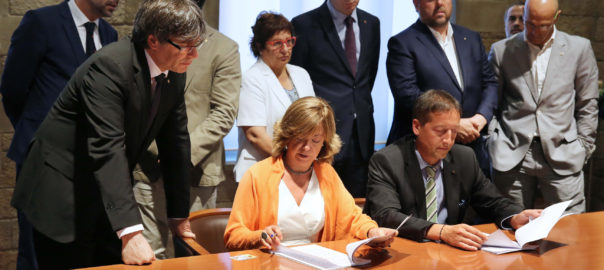The government questioned the 'legal basis' of the case against the minister
A Catalan government minister is to end up in court for buying ballot
boxes. Catalonia’s Supreme Court (TSJC) notified the Catalan Minister
for Public Administrations Meritxell Borràs that it has admitted the
complaint filed against her for the purchase of ballot boxes for use in
the October 1 referendum. This is the latest in a series of court cases
against pro-independence officials, following the prosecution of the
Catalan Parliament President Carme Forcadell and former Catalan
President Artur Mas, who was banned from office for organizing a
symbolic vote on independence in 2014. “We will keep going forward,”
said the spokeswoman of the executive, Neus Munté, after the legal
challenge against the purchase of the ballot boxes was confirmed.
A High Court representative went to the Catalan Government
headquarters in Barcelona on Tuesday during the weekly Executive Council
meeting to personally notify the Catalan minister of the complaint.
Borràs signed the required documents along with the Catalan President
Carles Puigdemont, Vice President Oriol Junqueras, and the rest of the
executive’s members. Catalonia’s public prosecutor presented the
complaint against Borràs and her former number two, Francesc Esteve, on
May 16, following orders from Spanish Public Prosecutor José Manuel
Maza.
Two companies are bidding to supply the 8,000 ballot boxes needed for
the independence referendum. Each of them has made an offer to the
government, which now has to take a decision. The interested companies
had to submit a tender to be approved and present their offer to supply
the ballot boxes. However, as the judicial complaint had already been
presented, the contracting board overseeing the process decided to
include four members of the government rather than civil servants so as
to avoid putting public workers at risk.

